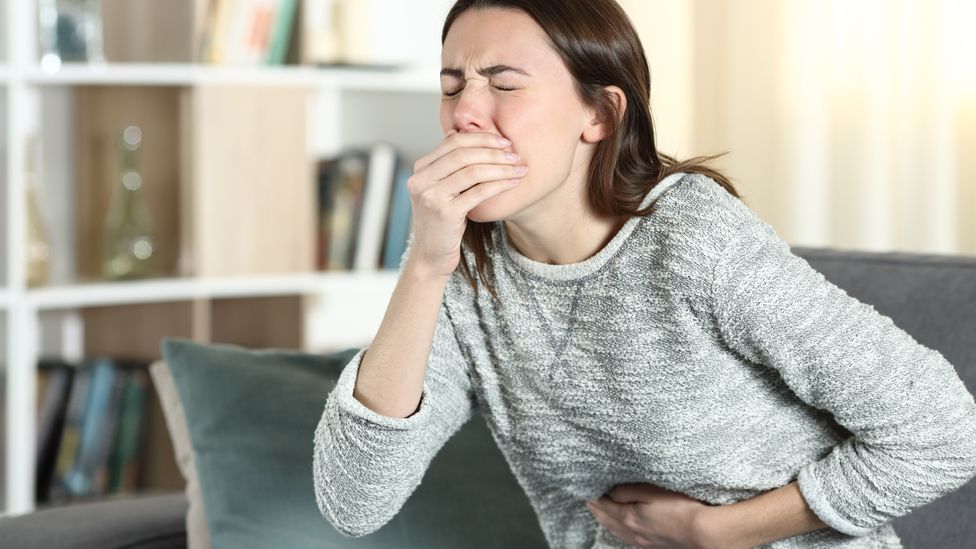ARTICLE AD BOX
 Image source, Getty Images
Image source, Getty Images
By Michelle Roberts
Digital health editor
Winter vomiting virus is doing the rounds in England, experts are warning.
Every day last week, there were about 350 people in hospital with diarrhoea and vomiting symptoms, compared with 126 in the same week last year, NHS England says.
Very contagious, norovirus can be caught from people or contaminated surfaces and sweep through care homes, hospital wards and nurseries.
Most recover in a few days without hospital care but some become very ill.
- sudden, projectile vomiting and diarrhoea
- high temperature
- stomach pains
- aching limbs
Norovirus can be caught from:
- close contact with - or eating food prepared or handled by - someone infected
- touching contaminated surfaces or objects and then your mouth
Washing your hands frequently with soap and water is the best way to stop it spreading. Alcohol hand gels will not kill norovirus. But bleach in water does work to clean contaminated surfaces, such as toilets and taps.
The latest NHS England figures show cases of other seasonal viruses are also rising.
Each day last week, on average:
- more than 150 beds were filled with flu patients, with seven in critical care
- 131 children were in hospital with respiratory syncytial virus (RSV)
- about 46,000 NHS England staff were off work sick, some 1,715 because of Covid
NHS national medical director Prof Sir Stephen Powis said: "We all know somebody who has had some kind of nasty winter virus in the last few weeks and today's data shows this is starting to trickle through to hospital admissions, with a much higher volume of Norovirus cases compared to last year, and the continued impact of infections like flu and RSV in children on hospital capacity - all likely to be exacerbated by this week's cold weather.
"It is clear that even before we enter December, the demand on hospitals and staff is high.
"So as ever, the public can also play their part by using services in the usual way - by calling 999 in an emergency and using NHS 111 for other health conditions - and by getting their Covid and flu jabs if eligible."
Related Internet Links
The BBC is not responsible for the content of external sites.

 1 year ago
33
1 year ago
33








 English (US) ·
English (US) ·